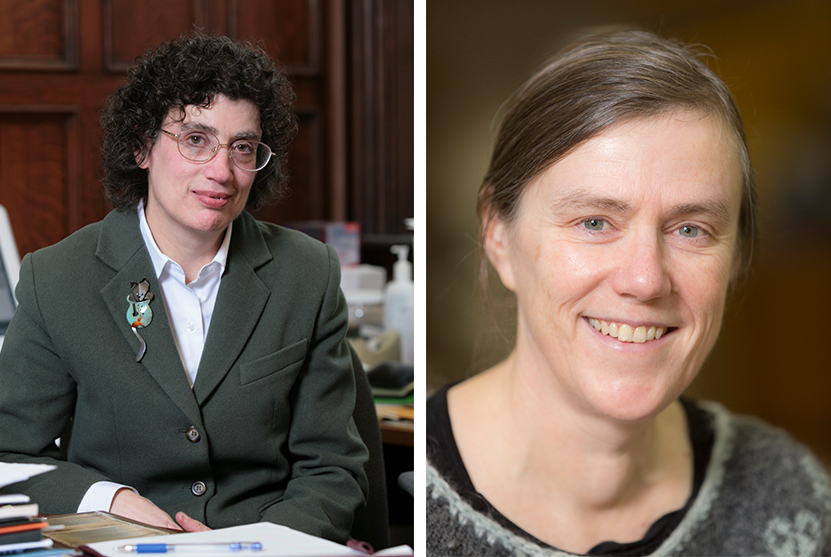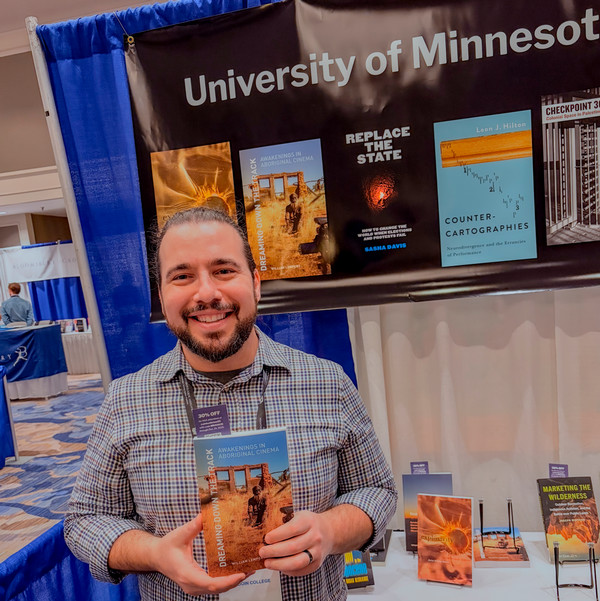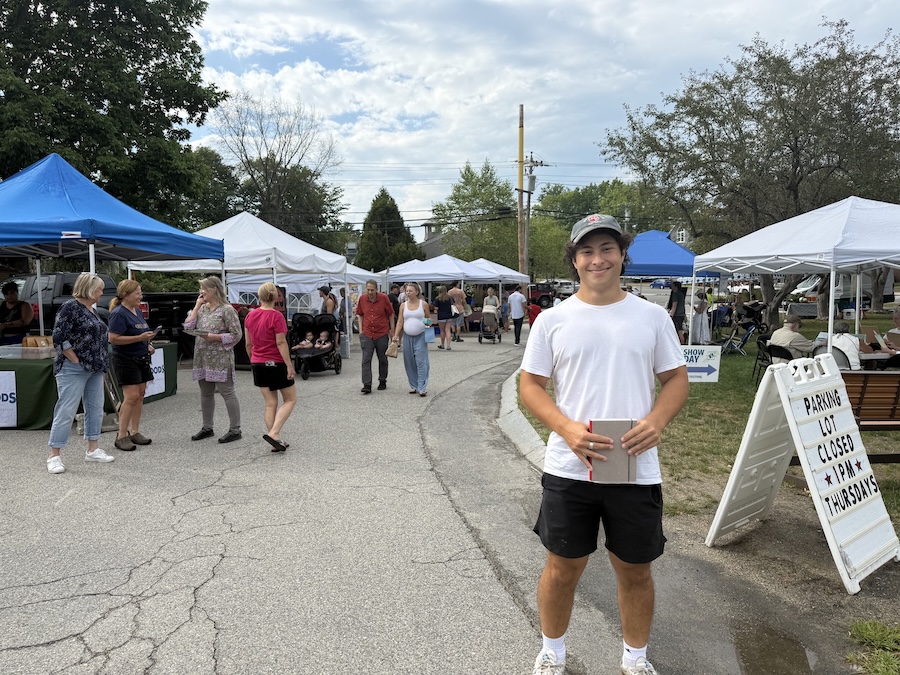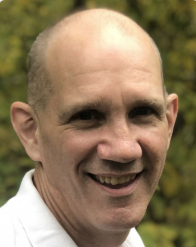Lily McVetty ’21 Widens the View on Climate Change Adaptation
By Rebecca Goldfine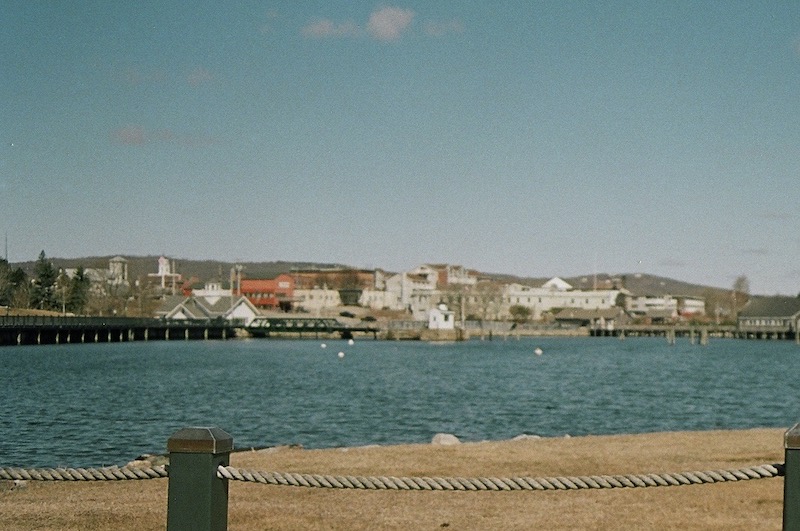
McVetty is from Rockland, a coastal town nestled between small hills and the sea. It has historically been a blue-collar fishing community, but has been slowly shifting its economic base to recreation and tourism. She and her mother moved there from California when she was six, and she spent much of her childhood swimming in clear, cool lakes and downhill skiing at the little mountain near her house.
Coming from this background, she found an academic home at Bowdoin in its environmental studies (ES) program. She paired her ES coordinate major with a major in anthropology to pursue her interest in the intersections among class, culture, and the environment, she said.

When her senior year came around, she decided to pursue these areas in greater depth, and launched a yearlong honors project focused on climate change and community adaptation, using her hometown as a case study.
Preparing for Change
Many of the communities that dot Maine's coast, including Rockland, are drafting plans in preparation for the effects of climate change—focusing on infrastructure resilience and adaptation, as well as public health, emergency management, and energy. They're taking these actions as the state embarks on its own ambitious long-term climate change agenda.
As she familiarized herself with these local and state initiatives, McVetty noticed that many of the reports seemed to tack on vague language about "equity" and "equality" as an afterthought.
"Many reports treat equity and equality like a checkbox," she said, adding that she wasn't too terribly surprised by this. "As a Chinese American and an environmental studies major, I have noticed and experienced how exclusive some environmental-related spaces can be."
Her honors project is an effort to address this, a blueprint of sorts for Rockland and surrounding towns to take a more conscientious and community-minded approach to climate change adaptation. Her opening question in her thesis is, "How can Rockland collaborate with neighboring West Penobscot Bay communities to help prepare its people and maritime industries for climate change effects in a way that is as equitable as possible?"
"Adaptation plans," she adds, "can fall short if their authors, including passionate and well-intended ones, design planning practices that fail to accurately reflect the needs and schedules of low-wealth, vulnerable, and marginalized community members."
One group that could be disenfranchised by climate change includes those who have traditionally fished for a living, or otherwise made their living from the sea. In her thesis, McVetty devised a compilaton of community-driven suggestions for equitable adaptation. One recommmendation emphasizes the importance of "revalorizing" maritime people, histories, and fisheries.
The motives behind revalorization, she explained, are to honor rural workers, including fishermen and lobstermen. "Urban-centric views have a habit of perceiving rural people and industries as inferior to those of larger cities," she said, and can diminish or exclude their viewpoints.
She points to a recent protest by the fishing community against an offshore wind project proposed for the Gulf of Maine. "I think it's great that they're organizing around this desire to not rush the process," she said. "They recognize the need for renewable resources, but believe it is about doing it the right way—that we have to know what the technical, social, and environmental impacts will be, and that those should be driven by the local knowledge of fishermen."
McVetty's research, as she noticed early on in her research process, coincides with other organizations beginning to address the issues of climate change and parity. She has found a recent report by the Mitchell Center for Sustainable Solutions at University of Maine, Orono, to offer a particularly useful framework for her own work. The report evaluates the potential equity outcomes of Maine’s official climate action plan.
"This project has been a wonderful opportunity to not only further learn about the community I come from, but also to coevolve with the things that are happening in the world," McVetty said.
Her advisor, Lecturer in Environmental Studies and Program Manager Eileen Johnson, said she believes McVetty may be one of the first to apply the Mitchell Center's equity framework to climate change adaptation and mitigation planning. "And that is really exciting," she added.
McVetty is using her findings to formulate a series of recommendations, many of which she compiled after conducting interviews with townspeople and reading publications from several midcoast organizations and businesses. These include the Island Institute, which supports Maine’s coastal and island communities; Maine Coast Fishermen’s Association, which is trying to protect Maine’s coastal culture, working waterfronts, community infrastructure, and environmental resources; The Herring Gut Learning Center, a marine science and aquaculture education center; The Hurricane Island Center for Science and Leadership, which offers educational programs for youth; and The Maine Center for Coastal Fisheries, a nonprofit that serves fishermen.
One of her most urgent recommendations is for towns to strengthen their social infrastructure—as well as their physical infrastructure. While coastal towns should be focused on fortifying things like roads and buildings to deal with rising seas and fiercer storms, McVetty said she also kept hearing community members speak about the need to strengthen their town's social fabric.
This concern is backed up by scholars—cited by McVetty in her thesis—who argue that the communities best set up to weather climate-driven shocks, uncertainty, and change are ones with relatively high employment and median household incomes, well-educated residents, and diverse support systems like churches and civic organizations.
McVetty argues that, to bolster social infrastructure, coastal communities might do well to expand recovery loans for maritime people and small businesses, invest more in school opportunities, and collaborate with nearby towns to co-hire a regional grant writer and coordinator who can help secure funding for climate adaptation and community-building projects.
After working for several months on her Rockland-based research, McVetty said she knows with more certainty that, whatever occupation she ends up pursuing, she wants to work with a small community.
"I enjoy working with communities in ways that are involved, and where I know that I can make an impact,” she said. “Having the opportunity to work with people in meaningful ways is really important to me, and this project has helped me realize that."
*The honors project at Bowdoin offers seniors the opportunity to engage in original scholarship under the supervision of a faculty member in their major, and results in a written thesis or artistic production. It is often a yearlong process, or longer, with seniors continuing to work up through the end of spring semester.
